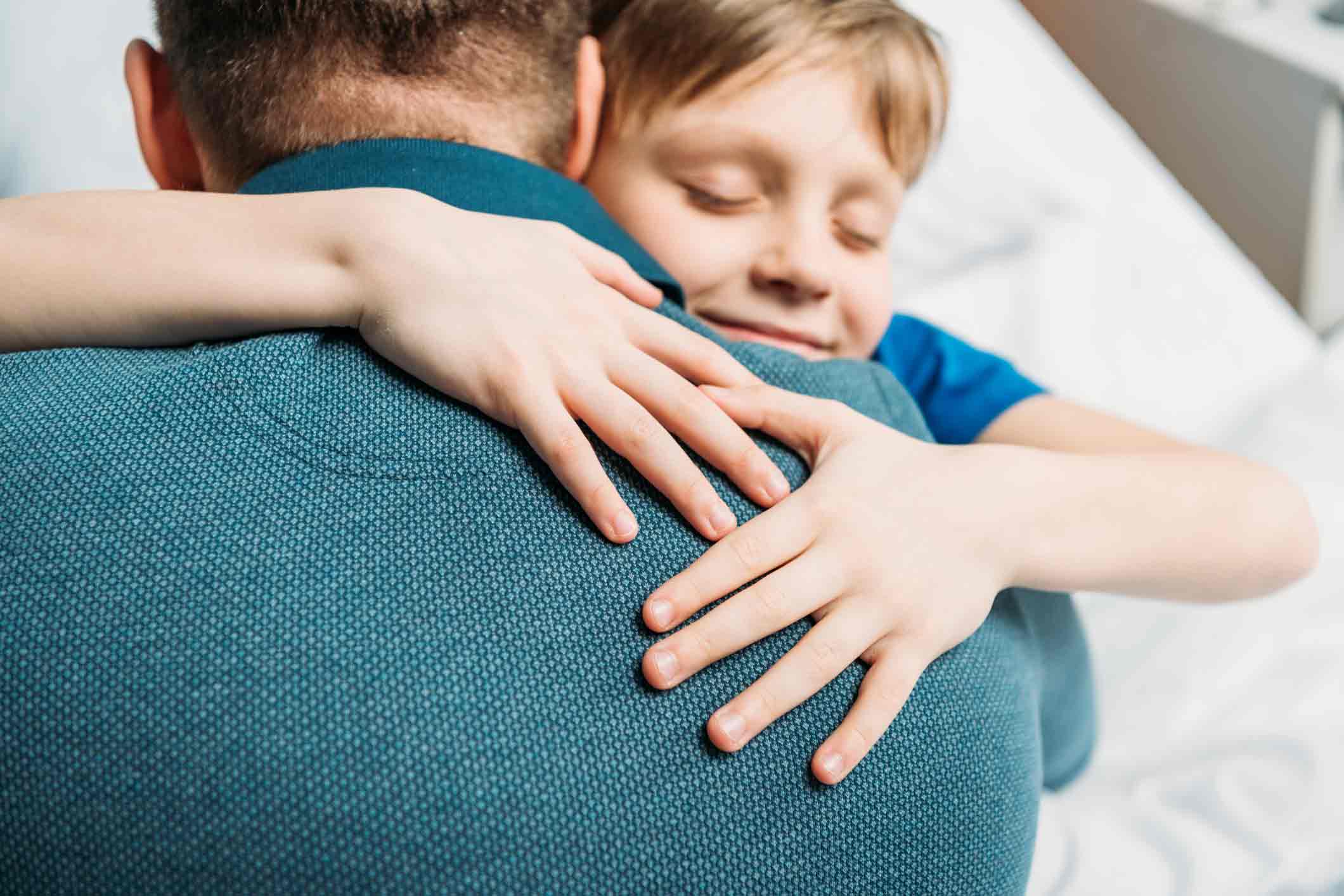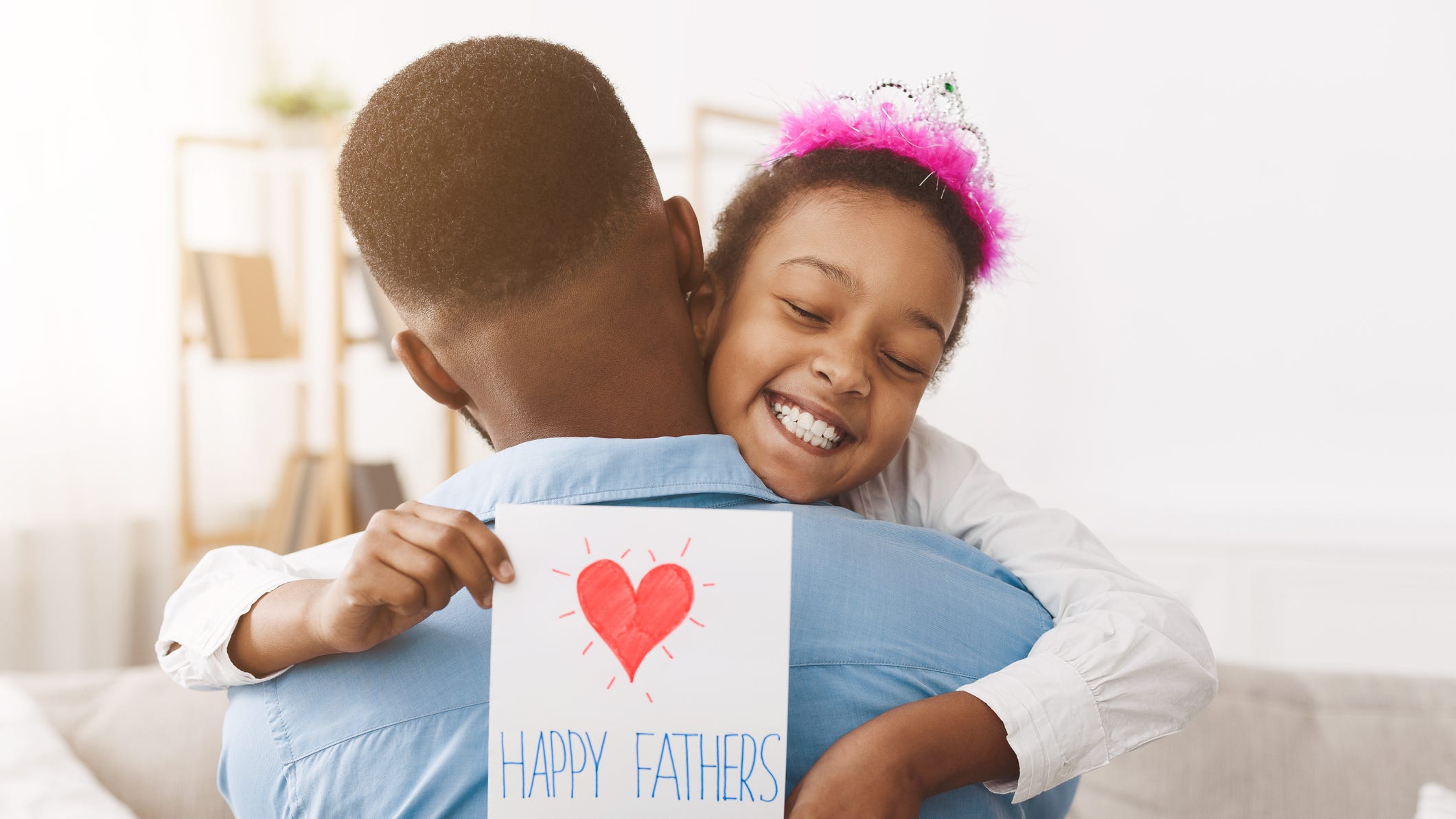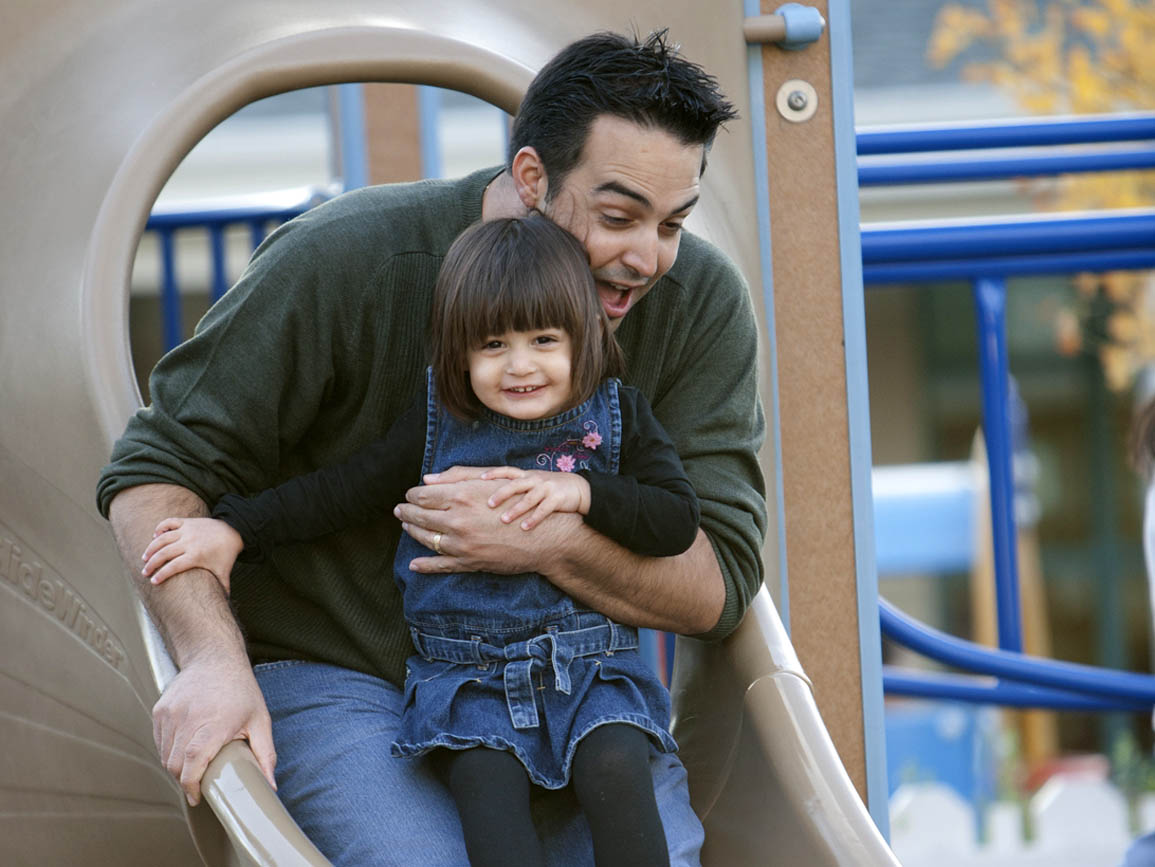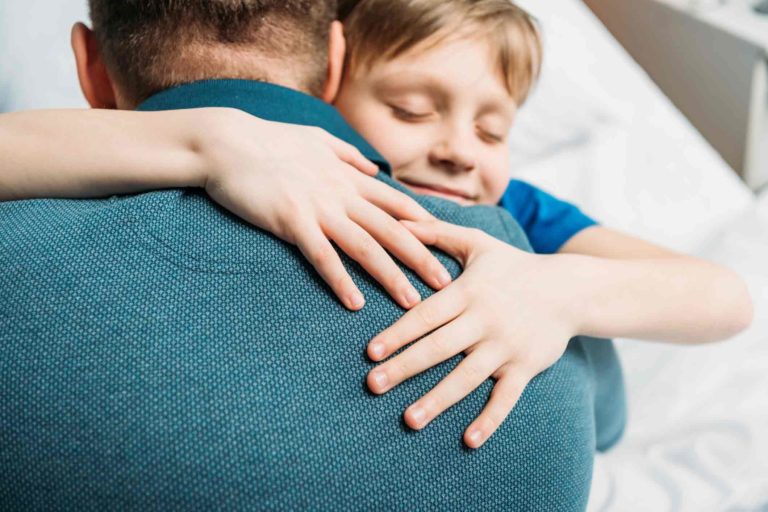Kids feel loved by fathers through warmth, playfulness, emotional support, presence, and fostering social connections. Children thrive socially, emotionally, and academically with involved fathers who provide security and promote inner strength.
Fathers show love by offering unwavering support, encouragement, and physical affection, which are vital for healthy development and self-esteem. By understanding their children’s love languages and being actively engaged in their lives, fathers can create a strong bond and help children feel cherished and valued.
Making time for quality interactions, listening attentively, and showing genuine interest in their interests can deepen the connection between fathers and children, making them feel loved and supported in a meaningful way.

Credit: www.pediatricsoffranklin.com
Table of Contents
ToggleSigns That A Child Feels Unloved
Children feeling unloved by their fathers may exhibit intense and irrational fears, longing for emotional security. Engaging fathers in their upbringing leads to better social, emotional, and academic development. Providing unwavering support and encouragement, fathers can help boost their children’s confidence and self-esteem.
Development Of Intense And Irrational Phobias
Beyond typical childhood fears, an unloved child may develop intense and irrational phobias. These fears could be a subconscious manifestation of a deep-seated need for emotional security. When a child feels unloved, they may develop extreme fears that are not proportionate to the situation. For example, they may have an intense fear of water, even if they have never had a traumatic experience associated with it. This fear could stem from a subconscious desire for emotional safety, as they may feel that their emotional needs are not being met by their father. As a father, it is important to recognize and address these phobias with empathy and understanding.
Some signs that a child may be developing intense and irrational phobias due to feeling unloved include:
1. Extreme reactions: The child may have exaggerated responses to certain situations or objects, such as screaming or crying uncontrollably when encountering a specific animal or being in a crowded place.
2. Unpredictable triggers: Phobias in unloved children may not have a clear trigger or reason. They may exhibit fear or anxiety in seemingly harmless situations or objects.
3. Resistance to exposure: Children feeling unloved may resist any attempts to confront or overcome their fears. They may avoid situations or places associated with their phobia, causing disruption to their daily life and activities.
4. Physical symptoms: In addition to emotional distress, unloved children may also experience physical symptoms when confronted with their phobia. These symptoms can range from rapid heartbeat and sweating to nausea and even panic attacks.
5. Prolonged and persistent fear: Unlike typical childhood fears that gradually subside over time, phobias caused by feeling unloved may persist for an extended period. The child may continue to experience intense fear and anxiety, affecting their overall well-being and development.
As a loving father, it is crucial to address these intense and irrational phobias with empathy and support. By creating a safe and nurturing environment, you can help your child feel loved and secure, gradually easing their fears and promoting their emotional well-being.
The Importance Of Fatherly Love
Children thrive when they receive love and support from their fathers. This bond goes beyond providing for their physical needs; it plays a crucial role in their overall development and well-being.
Children Do Better Socially, Emotionally, And Academically With Involved Fathers
- Involved fathers contribute to children’s social skills, emotional intelligence, and academic performance.
- Research shows that kids with supportive fathers tend to be more confident in their abilities.
Increased Confidence And Sense Of Security
- Fathers play a vital role in providing a sense of security and emotional stability to their children.
- Children who feel loved and supported by their fathers develop a strong sense of confidence and self-worth.
Promotes Inner Growth And Strength
- An involved father helps children build inner strength and resilience.
- By showing love and care, fathers encourage their children to grow emotionally and face challenges with confidence.
Ways Fathers Can Show Love To Their Children
Fathers play a crucial role in their children’s lives, and one of the most important aspects of that role is showing love and support. Here are some ways that fathers can demonstrate their love and care for their children:
Providing Unwavering Support And Encouragement
Fathers can show their love by providing unwavering support and encouragement to their family members. Whether it’s cheering on a child’s sports team, helping with homework, or being a pillar of strength during tough times, knowing that they have a father who believes in them can boost their confidence and self-esteem.
Cheering On Their Child’s Achievements
One of the most impactful ways for fathers to show their love is by cheering on their child’s achievements. Whether it’s a high-five for a good grade or a proud smile for a successful performance, celebrating their children’s accomplishments shows them that their father is their biggest cheerleader.
Helping With Homework
By assisting their children with homework, fathers can demonstrate their love and commitment to their child’s education. Taking the time to sit down and work through assignments together fosters a sense of connection and support.
Being A Pillar Of Strength During Tough Times
In times of difficulty, children look to their fathers for strength and stability. By being a consistent source of support during challenging moments, fathers can show their love and provide a sense of security for their children.
The Role Of Physical Affection
Fathers play a crucial role in nurturing their children, and physical affection is a cornerstone of healthy development and strong self-esteem. The bond formed through physical touch lays the foundation for a child’s emotional well-being and confidence. The importance of physical affection from a father cannot be overstated, as it creates a sense of security and fosters a deep emotional connection.
Cornerstone Of Healthy Development And Strong Self-esteem
Physical affection from a father is vital for a child’s healthy development and self-esteem. It provides a sense of being loved and cared for, which is essential for a child’s emotional and psychological growth. The warmth and reassurance conveyed through physical touch create a safe and nurturing environment, allowing the child to flourish and build resilience.
The Importance Of Physical Affection From A Father
Physical affection from a father is crucial for a child’s emotional well-being. It conveys love, support, and security, shaping the child’s sense of self-worth and belonging. Whether it’s a comforting hug, a gentle pat on the back, or simply holding hands, physical affection strengthens the bond between father and child, fostering trust and emotional stability.
Understanding A Child’s Love Language
In order to understand and communicate love effectively with your children, it’s important to become a student of their unique way of receiving love. Every child is different and may have a specific love language that resonates most with them.
- Observing your child’s reactions to different forms of affection can help you determine their love language.
- Some children may respond best to acts of service, while others may crave quality time or physical touch.
- Engaging with your child in various ways and paying attention to their responses can guide you in expressing love in a way that truly resonates with them.
Understanding your child’s love language can strengthen the parent-child bond and create a sense of security and emotional well-being for your child.

Credit: www.goodhousekeeping.com
How Children Perceive Fatherly Love
Children have a unique and innocent understanding of their father’s love. They perceive love not just through grand gestures, but also through small and simple acts of affection. Even something as gentle as a kind touch or a warm smile has a profound impact on a child’s perception of their father’s love.
Even Small Gestures Like A Kind Touch And A Loving Smile Are Impactful
Children have a natural ability to recognize and appreciate the smallest acts of love from their fathers. A gentle touch on the shoulder or a loving smile can make a child feel safe, valued, and cherished. These small gestures create a sense of connection and security, forming a strong foundation for a loving father-child bond.
Children’s Innocent Understanding Of Their Father’s Love
Children perceive their father’s love in a pure and innocent way. They are not influenced by societal expectations or complex emotions. To them, love is simple, straightforward, and genuine. It’s in the way their fathers listen attentively to their stories, play games with them, and tuck them into bed at night. It’s in the way their fathers protect them, guide them, and make them feel important. It’s in the unconditional love and support that fathers provide, enabling children to grow and thrive.
The Impact Of A Father’s Love On A Child’s Life
Fathers’ love profoundly impacts a child’s well-being, fostering emotional security and confidence. When kids feel loved by their fathers, they thrive socially, emotionally, and academically, building a strong foundation for their development and self-esteem. Nurture and support from fathers are crucial in shaping a child’s future success and happiness.
A Father’s Love Helps Children Thrive In Life
A father’s love has a profound impact on a child’s life. It goes beyond providing the basic necessities and extends to emotional support, guidance, and encouragement. When children feel loved by their fathers, they are more likely to thrive in various aspects of their development, including…
Positive Outcomes In Various Aspects Of Their Development
A father’s love positively affects a child’s emotional well-being, social skills, academic performance, and overall sense of self. Let’s explore these areas of development:
Emotional Well-being
- A father’s love provides a sense of security and stability in a child’s life, helping them navigate their emotions and build resilience.
- Children who feel loved by their fathers are more likely to develop a healthy self-esteem and emotional intelligence.
- They feel more confident in expressing their feelings and handling challenging situations.
Social Skills
- By being present and engaged in their children’s lives, fathers help them develop strong interpersonal skills.
- Children with involved fathers tend to have better social connections, friendships, and a greater understanding of empathy and cooperation.
- Fathers who encourage their children to expand their social ties contribute to the development of their social skills and overall social competence.
Academic Performance
- Fathers who are actively involved in their children’s education show support and encouragement, which can positively impact academic performance.
- Children with involved fathers tend to have higher levels of motivation, better problem-solving skills, and a stronger desire to succeed academically.
- They are more likely to have a growth mindset, where they believe in their ability to learn and overcome challenges.
Sense Of Self
- A father’s love and acceptance help children develop a strong sense of self-worth and identity.
- Providing unwavering support and encouragement, fathers contribute to their children’s confidence and belief in their own abilities.
- Children who feel loved by their fathers are more likely to set and achieve meaningful goals while staying true to themselves.
A father’s love has a far-reaching impact on a child’s life. By fostering emotional well-being, social skills, academic performance, and a strong sense of self, fathers play a crucial role in helping their children thrive and succeed.

Credit: www.brighthorizons.com
Frequently Asked Questions For Kids Feel Loved By Fathers
How Do You Know If A Child Feels Unloved?
An unloved child may develop intense and irrational phobias, which could be a subconscious manifestation of a deep-seated need for emotional security. Signs of feeling unloved include unusual fears. Resolving this issue involves providing emotional support and security to the child.
How Nurturing Fathers Change Children?
Nurturing fathers positively impact children’s social, emotional, and academic development. Involved fathers lead to more confident kids who fare better in various aspects of life. Fathers can show love by providing unwavering support, encouragement, and physical affection, boosting their children’s confidence and self-esteem.
Why Do Kids Love Their Dads So Much?
Kids love their dads because they provide security and enforces rules. Dads’ love boosts confidence and inner strength. Also, physical affection from fathers is crucial for healthy development and self-esteem. Children understand their father’s love through simple gestures like a kind touch or a loving smile.
How Does A Father Show Love To His Children?
Fathers show love by providing support, encouragement, and being present in their children’s lives through activities and emotional bonds.
Conclusion
Fathers play a crucial role in children’s lives by providing love, support, and security. Being present and involved helps kids thrive emotionally and academically. Show love through encouragement, support, and being a positive role model. Your dedication as a father impacts your children’s development and strengthens your bond.

Mother of Two children. I’m a former teacher with a background in child development and a passion for Good parenting. I understand child development and know how to develop activities to help children learn and grow. Spare time, I enjoy spending time with my family, reading, and volunteering in my community. Read More








